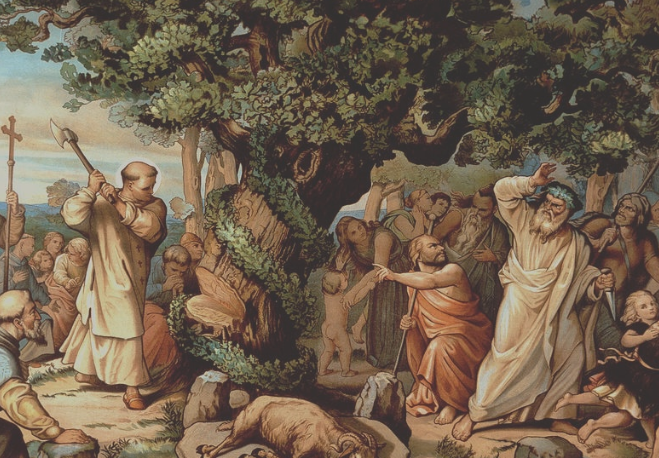The Influence of Saint Boniface in Germany
Saint Boniface is a towering figure in the history of Germany and its Christianization. Known as the “Apostle to the Germans,” he played a crucial role in shaping the religious landscape of the region during the 8th century. Understanding his influence not only illuminates the past but also sheds light on the enduring legacy of faith in German culture today.
His Missionary Work and Its Impact
Saint Boniface, originally named Winfrid, embarked on his missionary journey in 716 AD, primarily focusing on converting the pagan German tribes to Christianity. His innovative approach included building churches, educating local clergy, and introducing religious practices that resonated with Germanic traditions. This method greatly facilitated the acceptance of Christianity among the tribes, leading to a significant transformation in the social and spiritual fabric of Germany. His establishment of monasteries served as educational centers, influencing literacy and religious thought that persisted for centuries.
The Importance of Education and Scholarship
One of the most significant contributions of Saint Boniface was in the realm of education and scholarship. He was instrumental in founding schools and monasteries that became hubs of learning in medieval Germany. These institutions not only promoted theological studies but also preserved classical texts and fostered a culture of literacy. Boniface’s belief in the importance of education laid the groundwork for a literate society that would thrive in the subsequent Carolingian Renaissance. His commitment to education empowered local clergy and educated laypeople, helping to integrate Christian values into German society.
Saint Boniface’s Legacy in Modern Germany
Today, the legacy of Saint Boniface continues to resonate throughout Germany. Numerous churches, towns, and institutions bear his name, reflecting his profound impact on German culture. National holidays, such as the Feast of Saint Boniface on June 5, celebrate his contributions and remind contemporary Germans of their historical roots. Furthermore, his emphasis on unity and community remains relevant, as modern society grapples with issues of division and discord. Boniface’s teachings encourage unity in diversity and guide people towards a more cohesive community.
In conclusion, the influence of Saint Boniface in Germany is an essential chapter in the country’s religious history. His missionary work, commitment to education, and lasting legacy serve as a reminder of the power of faith in shaping culture and society. If you’re interested in learning more about this fascinating figure, consider exploring local historical sites or reading more about his life and works. Engaging with the stories of Saint Boniface can deepen your understanding of Germany’s rich cultural heritage.

